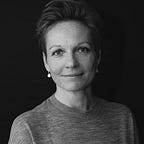What Danish CEOs get right about navigating uncertainty
Successful CEOs empower reflection, relationships and shared responsibility. This is why.
Not so long ago I wrote an article titled What McKinsey gets wrong about uncertainty. Now it’s time to look at what CEOs in successful Danish companies like Grundfos, Carlsberg and Vestas get right.
Interestingly, they seem to do the exact opposite of what the big management consultant company recommends. Instead of trying to crush uncertainty, they:
- Embrace reflection — Mads Nipper, CEO of Grundfos, says that the crisis has made him reflect upon his leadership style as well as his responsibilities and relationships with employees and managers. Apparently, Mads Nipper has doubted himself more as a leader the past months than he had the previous two years, and he welcomes this doubt as an opportunity to reflect and develop as a leader.
- Build relationships — Henrik Andersen, CEO of Vestas, emphasizes the importance of solving problems together. He says that when we try to solve crises on our own, we pull away from each other and by doing that we lose the trust and cohesion we need to rebuild our companies and communities.
- Share responsibility — Cees ‘t Hart, CEO of Carlsberg, says that the crisis has raised a lot of questions, but if there is one thing he is sure of, it is that different markets react differently. “The crisis cannot be handled with a single central approach dictated by headquarter,” Cees ‘t Hart says, so in order to get Carlsberg through the crisis, he has redistributed responsibility among Carlsberg’s 40.000 employees and established a far more autonomous management structure.
And it’s not only within their own organizations that Danish CEOs empower reflection, relationships and shared responsibility.
Recently Mads Nipper, Henrik Poulsen and Lars Fruergaard — CEOs of Grundfos, Ørsted and Novo Nordisk respectively — presented the result of their collaboration on how to create the conditions for a society-wide transition to a low-carbon sustainable future.
But why are Danish CEOs so focused on reflection, relationships and responsibility? And what do they and their companies gain from this way of navigating uncertainty?
A matter of strategic alignment
I think it’s important to understand that no CEO of a global company emphasizes reflection, relationships and responsibility because they are nice guys or because they think it makes them look good. They do it because it’s their only chance getting the strategic alignment their companies depend on.
With huge workforces spread across the globe and ambitious goals like Together Towards ZERO, CEOs depend on two things:
- Employees knowing what the corporate goals are, and
- Senior management knowing what employees need to realize the goals
Even before COVID-19, CEOs of large companies had a hard time knowing what their tens of thousands of employees needed to execute the corporate strategies effectively.
And serving hundreds of different markets, it is — as Cees ‘t Hart says — inevitable that different country managers and employees need different things to succeed.
During the COVID-19 crisis the need for distributed responsibility has increased dramatically, and so has the need for working systematically with strategic alignment.
We cannot continue doing business as usual
Unfortunately, none of our operating models and go-to tools are designed for ensuring strategic alignment in a distributed workforce.
So, what does a CEO do when he realizes that the answers, predictability, plans and tools he used to depend on, have been replaced with questions and uncertainty?
There is actually only one reasonable thing to do — and that is to ask:
- Who do I want to be? (embrace reflection)
- Who do I depend on? (build relationships)
- What should we do? (share responsibility)
Or to make it even more simple: When we are faced with tasks that we have no experience dealing with, all we can do is draw on our experience with being human.
Uncertainty is part of human nature. Nobody knows who or what a newborn will turn into growing up. It depends on their genes, upbringing, environment, education etc.
In other words: Humans are designed to adapt.
But for us to adapt successfully — that is, in accordance with our surroundings — we must connect with ourselves, each other and the world we share.
And that is exactly what our three Danish CEOs do. They seem to have realized that human beings depend on each other to navigate uncertainty.
Now, their next question should be: How do we redesign our operating models and tools to empower human reflection, relationships and shared responsibility?
Pia Lauritzen, PhD is founder and Chief Methodologist at Qvest.
